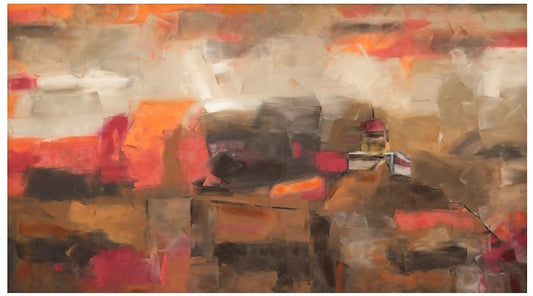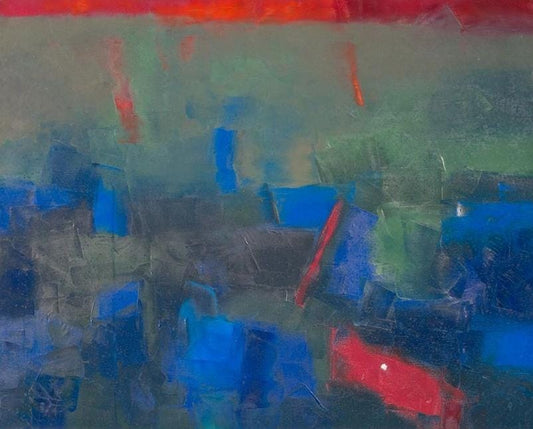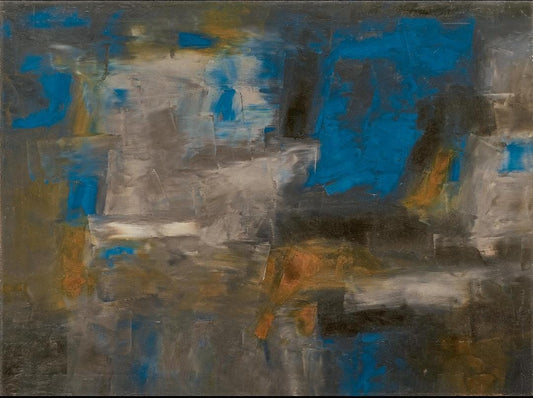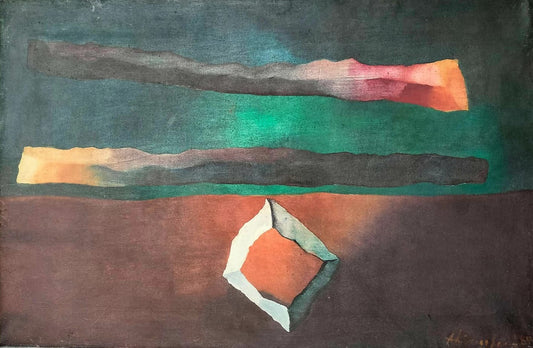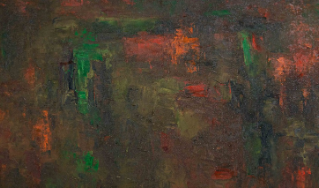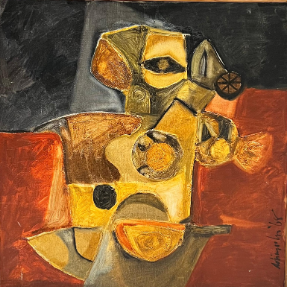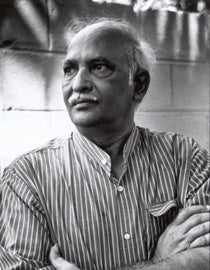
K. M. ADIMOOLAM
K. M. Adimoolam’s art reveals a deep commitment to exploring the intersection of tradition and modernity through abstraction rooted in Indian sensibilities. His canvases engage in a delicate balance between geometry and organic forms, where earthy ochres, siennas, and muted reds evoke both the landscape and cultural memory. This chromatic warmth complements compositions that reflect a nuanced understanding of spatial fragmentation, drawing from influences as diverse as Cubism and Indian folk art. Adimoolam’s visual language emerges from a sustained dialogue between order and chaos, fragmentation and unity. Angular shapes and layered planes intersect with fluidity, generating dynamic tension while maintaining a quiet harmony. These elements combine to create works that invite viewers into a reflective space, where the complexity of existence and perception unfolds subtly through line and form. The paintings resonate with symbolic depth, reaching beyond pure formalism to evoke emotional and spiritual inquiry.
The artist’s evolving synthesis of Western modernist movements and Indian cultural motifs reflects a persistent search for an abstraction that feels both contemporary and deeply rooted in place. Adimoolam’s dedication to this synthesis positions him as a vital figure in the development of modern Indian art, offering a visual experience that honors cultural specificity without sacrificing innovation. His contributions extend beyond his studio practice into education and mentorship, where he played an influential role in shaping future generations of artists. Through his teaching and advocacy, Adimoolam helped foster a broader discourse around abstraction and cultural identity within India’s art institutions.
K. M. Adimoolam’s work continues to resonate with its timeless quality and evocative power. His paintings stand as eloquent testimonies to the possibilities of abstraction informed by heritage and place, bridging tradition and modernity with subtlety and sophistication. They invite contemplation and engagement, offering a richly layered encounter that reflects the artist’s enduring vision and intellectual rigor.
-
K. M. Adimoolam
Visibility of the Rock Temple
Regular price Rs. 0.00Regular priceUnit price per

